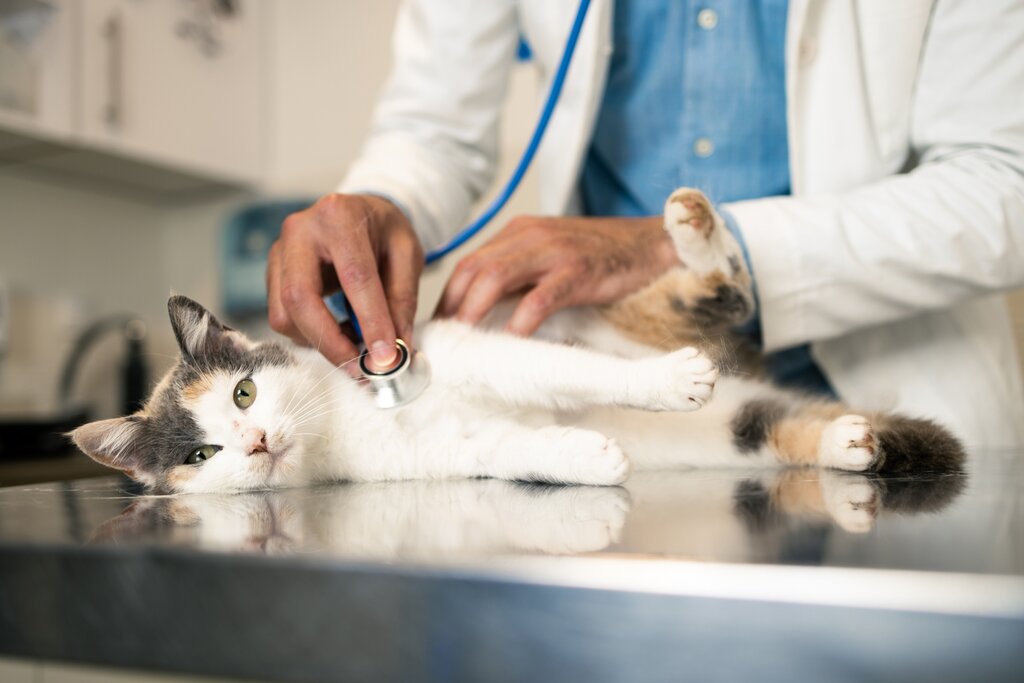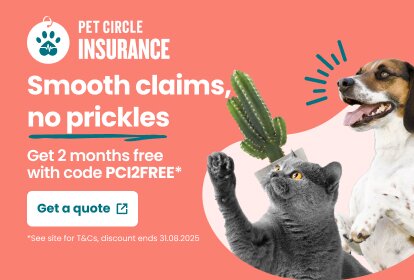Last Updated: 20/05/2025
Budget Tips for Pet Owners
Looking to save money on pet care? Check out our top 10 tips for budgeting better with pets.
Author: Dr Belinda Stancombe BVSc (Hons)
Reading Time: 34 minutes - long read
We all want to start off the New Year afresh so why not put some actions into place with some handy budget options for our pets. With the cost of living at an all time high we can all benefit from some money-saving tips. Being back at work and getting the kids back to school presents an ideal opportunity to plan for the year ahead. Of course we still all want what is best for our pets and saving money doesn't mean having to substitute on quality.
Our vets have listed their top tips on how to budget better for your pet and save money, while ensuring the optimal health and well being of your pet.
Tip 1. Buy in Bulk
Buying products in bulk, such as food, litter or preventatives can help save money in the long run.
While it may be tempting to just buy a small bag upfront because it costs less, buying larger bags in bulk brings down the price per kg. For example Hills Science Diet Adult Dry Food is almost 40% cheaper when purchased in bulk.
Dry and wet food, if stored correctly, has a long expiry date, so storing in a dry, cool place either in the original sealed bag that they came in or in airtight containers will help keep food fresher for longer.
Small vs Bulk Buy Comparison
Tip 2: Keep Up Regular Veterinary Visits

Spending money on regular veterinary visits may seem counter-intuitive when it comes to saving money, but having regular vaccinations and check ups on your pet, is a great way to protect them against preventable illnesses. Your veterinarian may also identify other medical issues early on, which may save you money in the long run and ensure that your pet is in optimal health.
For younger dogs and cats, annual check ups and vaccinations are recommended, while for older pets or those with pre-existing conditions, six monthly visits are optimal.
For more information when your pet should see the veterinarian, read our veterinary written article How Often Should Your Pet Visit the Vet?
Tip 3: Give The Right Preventatives
Regular preventatives are important to help protect your pet against nasty parasites such as ticks, heartworm and hookworm which can make pets really unwell, with treatments running into the thousands. In some cases these parasites may even be deadly!!
Choosing the right preventative for your pet can be difficult. With so many options on the market, it is easy for owner to be confused between the different brands and what their pet should be covered for based on their age, location and whether they are indoor or outdoor. When swapping between different brands of preventatives, pet parents may accidentally no longer be covering for a particular parasite or they may in fact be doubling up on preventatives, meaning that they are spending more than they need to on prevention.
If you are unsure which preventative is the most suitable for your pet, it is best to check with your local veterinarian or contact the Pet Circle Vet Squad.
For more information on preventatives read our veterinary written articles Flea, Tick and Worming Guide For Dogs and Flea, Tick and Worming Guide For Cats.
Top Vet Recommended Preventatives
Tip 4: Groom at Home

Depending on the breed of your dog or cat, regular grooming and bathing may be required to keep their coat and skin in optimal condition. Bathing, brushing and clipping your pet at home can save you money.
Try brushing your dog or cat daily to prevent mats from occurring. Investing in a good quality brush that suits your pet's coat can help make the job easier. For dog or cat breeds that require regular clipping, try purchasing some clippers and give this a go at home!
Nail clipping is another grooming requirement that you can try at home to save money. Purchase a good quality pair of nail clippers and follow this guide on how to clip your pets nails. If cutting your pet's nails seem daunting, ask your vet or vet nurse to teach you. If your pet is a little unsure, treats can go a long way. Try using a lickimat with some peanut butter or a lickable treat smeared on as a distraction.
Bathing your pet at home, instead of relying on dog washing services or groomers can help save you money. Try using a mild shampoo and conditioner that is gentle on sensitive skin and can be suitable for different pets and skin types to save you having to purchase multiple products.
Tip 5: Consider Pet Insurance
Pet insurance can be a great way to protect your pet and yourself against any unexpected medical expenses. Like all insurance policies it is important to do your research, consider your budget and what you want your pet covered for. When your pet is a puppy or kitten is a great time to get them insured. They are less likely to have pre-existing medical conditions that can be excluded in their insurance policies, plus young pets are prone to getting into mischief. Most insurance premiums increase as your pet ages so it is important to budget for this.
If pet insurance isn't for you, consider setting up a bank account where you put aside money on a regular basis to cover for your pet's medical expenses. This ensures that if your pet becomes unwell or requires surgery for some reason you have the funds already available to help cover the costs.


Millell Pty Ltd trading as Pet Circle (ABN 17 148 151 213, AR 001300998)(“Pet Circle”) promotes and distributes Pet Circle Insurance as an authorised representative of ThePetInsuranceCompany.com.au Pty Ltd (ABN 38 620 795 735, AFSL 536651) (“The Pet Insurance Company”). The Pet Insurance Company acts under a binding authority from the insurer, Pacific International Insurance Pty Ltd (ABN 83 169 311 193, AFSL 523921) (“Pacific”), which underwrites this product. In all aspects of arranging this product, Pet Circle and The Pet Insurance Company act as agents of Pacific, not as your agents. Any advice provided is general and does not take into account your objectives, financial situation, or needs. Please consider the Product Disclosure Statement (“PDS”), Financial Services Guide (“FSG”), and Target Market Determination (“TMD”) at www.petcircleinsurance.com.au before deciding to acquire or hold the product. Terms, conditions, limits and exclusions apply. Please refer to the PDS.
Tip 6: Choose a Premium Pet Food
Good nutrition is important to health - both for us and our pets. Supermarket pet foods are often complete and balanced but lack the additional benefits and nutritional analysis seen in Premium brand foods. These diets are highly digestible and often more nutrient dense, which means you may actually need to feed less, potentially saving you money in the long run and also keeping your pet healthier.
When considering cost per day, a premium brand diet such as Advance Adult Cat Food costs $0.68 per serve while a leading supermarket brand dry food costs $0.77 per serve. The Premium Diet is not only cheaper, but has the addition of Omega 3 fatty acids, antioxidants and tartar control, providing your pet with additional health benefits. The increased digestibility of Premium Brands when compared to a supermarket brand, results in a smaller serving size meaning a bag of food will last longer and save you money!
For more information on the advantages of feeding Premium Diets, read our veterinary written article The Real Cost of Supermarket Food.
Premium Pet Food Brands
Tip 7: Opt for Auto Delivery or Subscriptions
Many companies offer loyalty discounts on food and other pet products. Signing up for an auto delivery on your pet's essentials ensures they arrive at your door, at a set time period of your choosing, without you even having to think about it.
Many auto delivery or subscription services offer discounts of up to 20% dependent on the product you are buying, which saves you money in the long term and can be cancelled at anytime.
Tip 8: Interactive Toys and Treats

Our pets love treats and we love rewarding them, but spoiling your pet doesn't have to be expensive.
Interactive toys such as KONG, Lickimat and West Paw are durable and fantastic quality. All brands can be coupled with your pet's favourite treat, regular dry kibble or home made recipes, and frozen for an extra challenge. They are reusable and dishwasher safe, making clean up a breeze! Check out our healthy home made KONG, Lickimat and West Paw stuffer recipes.
For Dogs
Interactive Toy Recipe Ideas:
- KONG Ziggies and KONG Biscuit Treats
- KONG Pastes
- Peanut Butter
- Pumpkin, Sweet Potato or Apple Puree
- Yumguard Paste
- Dry Kibble or Wet Food
- Warm porridge- pre-cooked with no sugar
- Cottage Cheese or Natural Yoghurt
- Fill with Bone Broth or low-salt stock and freeze
For Cats
Interactive Toy Recipe Ideas:
- Lickable treats
- Wet Food such as Royal Canin Wet Food, Wellness Core Simply Shreds or Ziwi Wet Food
- Canned fish (salmon, tuna or sardines)
- Pumpkin, Sweet Potato or Apple Puree
- Natural Yoghurt
- Treats such as Greenies or Blackcat
- Fill with Bone Broth or low-salt stock and freeze
Try making some free interactive toys at home. For dogs, take a clean and dry 2L milk bottle, remove the lid, carefully poke some holes in it and fill it with your pet's favourite treat or kibble. Your dog will love rolling this home made toy around waiting for the food to pop out! For cats, leave any delivery boxes lying around for a few days for your cat to play in and investigate....cats love boxes!!
For more home made recipes for your pet read our veterinary written articles Winter Recipes for Dogs, Cats and Pocket Pets, Home Made Winter Recipes and Summer Recipes.
Tip 9. Buy Products Online
Purchasing pet supplies online not only gives you access to a wide variety of products and different brands, but it enables you to 'shop around' and compare prices, all from the comfort of your home. Online stores can often offer lower prices than physical pet stores and even deliver to your door, saving you time, the effort of lugging big bags of food out of the car and petrol....which is so expensive at the moment!!
Some large pet store chains even list different prices online compared to in store. Customer are stung with prices up to 30% higher in store because of the 'convenience' offered of being able to purchase immediately.
Sometimes it is difficult to know which product is best for our pet, and in these cases going into a pet store can help answer questions or concerns that you may have. Not all pet retailers are created equal though, with many pet stores selecting staff based on retail experience, not qualifications in animal care.
At Pet Circle we have qualified veterinarians available to answer any question you may have about your pet, all free of charge. You don't even have to be a customer! Ensure the pet advise you are getting is from qualified individuals with your pet's best interest at heart.
Further Reading
Want to read more? Check out our other articles:
History
Our experts continually monitor the health and wellness space and we update our articles when new information becomes available.
Wed Nov 25 2024
Written by Dr Belinda Stancombe BVSc (Hons)Dr Belinda Stancombe BVSc (Hons)
Veterinarian
Dr Belinda graduated from The University of Queensland in 2009 and has worked as a Small Animal Veterinarian for over 10 years in South East Queensland. She also has experience as a telehealh consultant, providing veterinary advice for online customers.She has a special interest in animal behaviour, preventative health, the human-animal bond and internal medicine. Outside of work hours she is closely affiliated with a kitten rescue and is also a devoted carer of orphaned rescue kittens.

